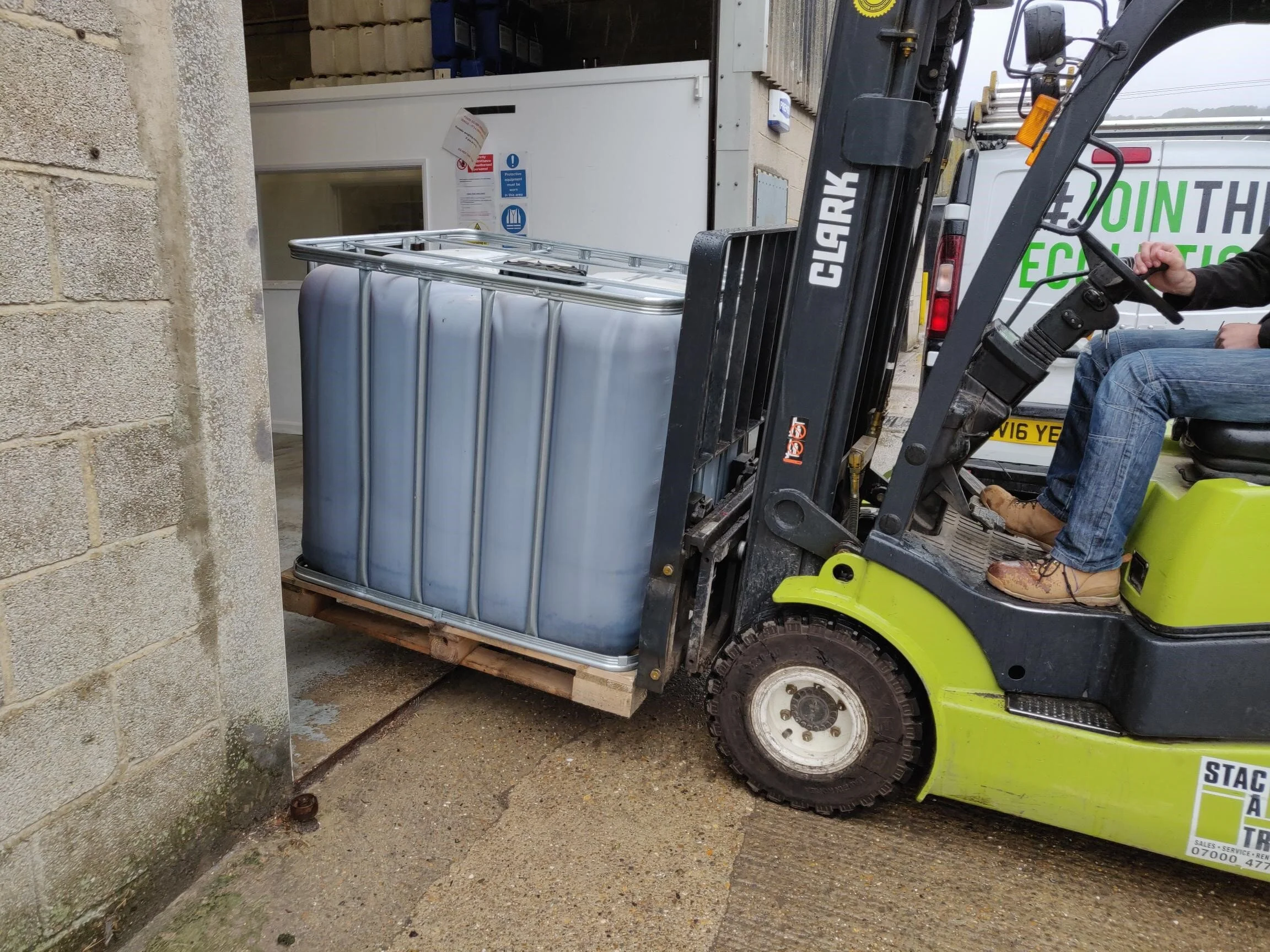Solar hot water and heat pump systems capture thermal energy from renewable sources to provide various forms of heating and hot water. Within these technologies, heat transfer fluids temporarily absorb heat, carrying and dumping it at points of usage. To protect outdoor pipework and machinery in cold weather, the fluids must also be a reliable antifreeze.
For this purpose, glycols diluted with water are used – the ratio of water to glycol controls the freezing point of the heat transfer fluid.
Corrosive and scale inhibitors, biocides and other chemicals are added to increase fluid and system longevity.
In a solar hot water system, the heat transfer fluid is circulated by a pump; collecting heat at the solar panels and dumping it at a hot water cylinder. In periods of stagnation, temperatures can reach 200°C.
When overstressed by heat, glycol can be cracked into other chemicals. If this happens, the system needs flushing out with a solvent and refilling with new glycol.
The type of glycol chosen and used in the system can have enormous long-term repercussions for the efficiency and longevity of the system. At Ecolution, we use Solaris PG20 propylene glycol in solar hot water systems. This fluid stays intact at high temperatures and comes ready-mixed with purified water – freezing at minus 20°C.
A large proportion of monobloc air source heat pump systems are filled with glycol. The fluid is circulated by a pump, collecting heat at the outdoor fan unit and taking it directly to radiators, underfloor heating pipework and hot water cylinders. Most manufacturers recommend systems are protected down to approximately minus 15°C.
At Ecolution, Fernox ¯15C propylene glycol is used for air source heat pump systems. The fluid is a 100% glycol liquid; mixed on-site with tap water to the required freezing point.
Ground source heat pumps have pipe systems underground. Glycol is circulated by a pump, collecting heat from the ground and dumping it at the heat pump’s evaporator.
The purchased heat transfer fluid is mixed with water, raising the freezing point to minus 12°C.
Ecolution’s present choice for ground source heat pumps is Thermox DTX – a non-toxic form of ethylene glycol.
Glycol is always checked during system servicing. A refractometer displays the fluid’s freezing point and indicator paper confirms that the glycol has not become acidic.
Acidification is very rare but will corrode metal pipes and heat exchangers if left unchecked.
Generally, frost protection is lost over very long periods. More often glycol is compromised by the addition of water at some point in the system’s life.
The two main factors contributing to the degradation of glycol are heat and bacteria.
When Ecolution replaces glycol in the systems, the old fluid is collected, filtered and stored accordingly in large containers at our stores. Once filled, the containers are collected and disposed of in a sustainable way by a waste management and recycling company.



